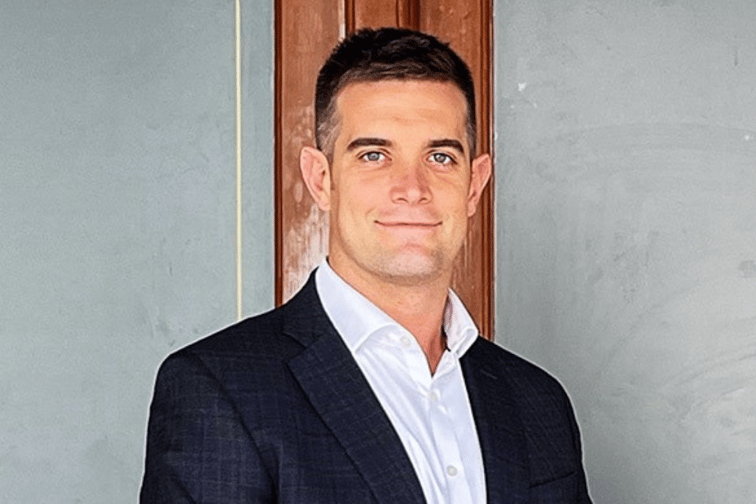

Earlier this year, when Australia was opening its borders and businesses post-COVID-19, the underwriting agency G.O.A.T. Insurance launched. According to its owners, this trading facility of Sydney based Market Lane Insurance Group was established to provide insurance for businesses in the sports, hospitality and leisure industries.
“We’ve been trading for eight months now, and I think we are getting some really good traction in the market,” said G.O.A.T.’s head of property Sam Reid (pictured above).
In February, many business leaders anticipated a rapid post-pandemic economic recovery and G.O.A.T.’s target customers were among those expected to bounce back. Jennifer Westacott, CEO of the Business Council of Australia, highlighted small businesses, tourism operators and the events industry as those set to benefit. That recovery was cut short by the global economic downturn.
Despite the current economic doom and gloom, Reid said his agency is off to a promising start.
“We get in excess of 100 submissions a week, I’d say,” he said. “I think it’s been well received by the broking community.”
Reid credited part of this success to strong trading relationships with corporate broking firms but also smaller regional brokerages and AR networks. However, he said there’s “plenty of work to do to ensure we are a profitable coverholder, long-term.”
Reid said they currently only provide property insurance for their niche segment but with “quite a broad appetite”. He said the firm can quote property risks across metropolitan, rural and remote areas, excluding cyclone prone zones.
Read next: Pursuing profitable property coverage
“We are working on a liability product with a very niche appetite – hopefully we will have something for 2023,” he said.
They’ve become a specialist in offering coverage to licensed hotels and pubs, but their customers include a range of other businesses.
“We write a number of sporting associations, gym organisations, bowling clubs, holiday parks, restaurants, bars and boutique accommodation to name a few,” said Reid.
Micro-breweries are also among their customers.
“The micro-brewery and distillery space is obviously a growing industry, so we’re seeing plenty of these as well which are also within appetite,” he said.
Reid didn’t discount covering more difficult areas of his niche market, like caravan parks or ride operators, but said it would have to be on his firm’s own terms.
“We have a very limited appetite for holiday parks,” he said. “I guess there’s a reason why they’re so hard to place – they are often remote and in bushfire, flood or cyclone zones without access to emergency services.”
Reid said any consideration of these risks would need to involve removing most of the “working losses”, ensuring catastrophe exposure is minimised and the risk is adequately rated.
“So it’s a sustainable solution for the long term,” he said. “In the past, the coverage has been quite broad with relatively low deductible structures compared to what is available in the market today.”
He said the coverage is still there “but it comes at a cost.”
“In time, you’d expect it to balance out with sustainable ratings and coverages,” said Reid.
In some industries where liability insurances have become unaffordable and unavailable, some brokers have said a lack of adequate risk information from customers has contributed to this situation.
Mick Alexander, managing director of HIB Insurance Brokers based in Albury, NSW, said the main issue stopping amusement ride operators getting coverage is submitting insufficient documentation.
Reid said, from the perspective of providing property coverage, lack of information is not generally an issue.
“Our brokers will always send through risk information and there are a range of satellite images and mapping services available which provide a significant amount of information,” he said. “The insured’s website is also a really good tool when analysing a risk.”
Reid said, on most risks, his firm commissions surveys to ensure a thorough understanding of what they’re covering.
“We like to think we are responsive, easy to deal with and have a can-do attitude,” he said. “What’s unique to the Market Lane brand is the way we approach the market and the way we trade with our clients.”
The G.O.A.T. brand name is certainly unique and memorable.
Rather than the animal related to the sheep, the name is inspired by Muhammed Ali. According to the firm’s website, GOAT, an acronym that stands for Greatest of all Time, was used in Ali-related publicity during the 1990s.
